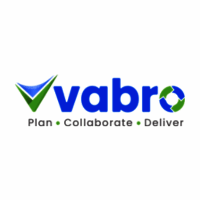Description

Logi-Sys

Openkoda
Comprehensive Overview: Logi-Sys vs Openkoda
As of my last update in October 2023, the specific products "Logi-Sys" and "Openkoda" might have different attributes or recognitions in their respective domains. Nevertheless, I will provide a general overview based on typical product functions and market dynamics for similar types of solutions in logistics and open-source platforms. If these products are recent or niche, consider checking their official websites or recent publication materials for the most accurate and up-to-date information.
Logi-Sys
a) Primary Functions and Target Markets
-
Primary Functions:
- Logi-Sys is often characterized as a comprehensive logistics and freight management software. Its functions usually cover end-to-end logistics operations, including freight forwarding, transportation management, warehouse management, and inventory control.
- It might also include modules for shipping, documentation, finance and billing, customer relationship management (CRM), and compliance management.
-
Target Markets:
- Typically targets logistics companies, freight forwarders, custom brokers, 3PL/4PL providers, and other companies requiring robust logistics operations management.
- Small to medium-sized enterprises (SMEs) and large logistics firms that need integration of their logistics functions into a single platform.
b) Market Share and User Base
- Market Share:
- In the logistics software market, various players offer extensive functionalities, making the environment competitive. Logi-Sys would typically compete with both niche providers and big names like SAP Logistics, Oracle Transportation Management, etc.
- User Base:
- Likely caters to a specialized audience focusing on logistics, with a user base ranging from small logistics firms to larger enterprises that focus on ease of automation and integration of their supply chain processes.
c) Key Differentiating Factors
- Comprehensive suite for logistics operations.
- User-friendly interface designed for logistics professionals.
- Integration capabilities with other enterprise systems (ERP, CRM).
- May include specific compliance features for international logistics.
Openkoda
a) Primary Functions and Target Markets
-
Primary Functions:
- Openkoda is typically an open-source platform or low-code development environment focused on enterprise-level applications. It might offer tools for application development, process automation, and integration capabilities.
- Additional functionalities may include workflow management, data management, and collaboration features.
-
Target Markets:
- Targets businesses of all sizes looking for customizable and scalable software solutions without relying heavily on proprietary systems.
- Particularly appealing to tech-savvy SMEs, startups, or any organization wanting to leverage open-source flexibility and cost-effectiveness.
b) Market Share and User Base
- Market Share:
- In the global market, open-source platforms have been rapidly growing due to their flexibility and no-cost entry, competing with proprietary software from companies like Microsoft, IBM, Salesforce, etc.
- User Base:
- Openkoda might attract a diverse set of users, including developers, IT departments, and businesses focused on technology-driven innovation and customized solutions.
c) Key Differentiating Factors
- Open-source nature allows customizability and cost savings.
- May offer a community-driven approach to updates and improvements.
- Emphasis on low-code development to speed up application deployment.
- Flexibility to adapt to various business processes, enabling more tailored solutions.
Conclusion
The primary differentiation between Logi-Sys and Openkoda would likely lie in their focus areas—Logi-Sys serving as a specialized tool for logistics management, while Openkoda offers a broader, customizable platform suitable for a range of business applications. In terms of market share, Logi-Sys would be more niche-focused, whereas Openkoda might appeal to a broader audience looking for flexible, open-source development environments. For the most precise information on market share and specific differentiators, consulting industry analysis reports or the companies' official resources would be beneficial.
Contact Info

Year founded :
2005
+91 22 4034 0000
Not Available
India
http://www.linkedin.com/company/logisyserp

Year founded :
Not Available
Not Available
Not Available
Not Available
Not Available
Feature Similarity Breakdown: Logi-Sys, Openkoda
To provide a feature similarity breakdown for Logi-Sys and Openkoda, we need to analyze the core features, user interfaces, and unique aspects of each product:
a) Core Features in Common
Logi-Sys: Logi-Sys is a logistics and supply chain management software designed to streamline operations for freight forwarders, logistics service providers, and NVOCCs. Some of its core features include:
- Freight Management
- Warehouse Management
- Transportation Management
- Invoicing and Billing
- Customer Relationship Management (CRM)
- Reporting and Analytics
Openkoda: Openkoda is a platform focusing on business operations, offering features to support enterprise applications development and management. Its core features include:
- Custom Application Development
- Workflow Automation
- User Management
- Role-based Access Control
- Reporting and Analytics
- Integration Capabilities
Common Core Features:
- Reporting and Analytics: Both platforms offer robust reporting and analytics capabilities to track and measure business performance.
- Integration Capabilities: Both products support integration with other systems, enhancing their ability to streamline processes and data flow.
b) User Interfaces Comparison
Logi-Sys User Interface: Logi-Sys typically has a user-friendly interface tailored for users in the logistics sector. It focuses on process efficiency with easy navigation, dashboards for real-time data visualization, and quick access to essential logistics functions.
Openkoda User Interface: Openkoda’s user interface is designed to be flexible for developers and business users engaged in application development and workflow management. It offers a clear and customizable dashboard, emphasizing application building and business process automation.
Comparison:
- Focus: Logi-Sys focuses on ease of use for logistics functions with an intuitive layout, while Openkoda focuses on customization and flexibility for application management.
- Customization: Openkoda offers more options for customization of the user interface to suit specific business applications.
c) Unique Features
Logi-Sys Unique Features:
- Specialized Freight Management Tools: Logi-Sys provides freight-specific functionalities, such as multi-modal transport management, rate management, and cargo tracking, which are essential for logistics operations.
- Compliance Management: Tools for managing customs and trade compliance efficiently streamline international logistics processes.
Openkoda Unique Features:
- Application Development Framework: Openkoda is distinct in its offering as a platform for building custom enterprise applications, which allows businesses to tailor software applications to their specific needs.
- Workflow Automation Tools: It provides advanced workflow automation capabilities that are less focused on logistics and more on general business process automation.
Conclusion
While both Logi-Sys and Openkoda offer robust reporting and analytics, and integration capabilities, they cater to distinct market needs. Logi-Sys is specialized for logistics operations with unique freight management tools, while Openkoda stands out with its application development features and workflow automation capabilities. Both products vary significantly in interface design, reflecting their target user base within the logistics and enterprise application domains, respectively.
Features

Not Available

Not Available
Best Fit Use Cases: Logi-Sys, Openkoda
Logi-Sys and Openkoda serve different purposes and industries, and their suitability varies depending on the specific needs of businesses or projects. Here’s an overview of their best fit use cases:
a) Best Fit Use Cases for Logi-Sys
Logi-Sys is a comprehensive logistics and freight forwarding software solution. It is specifically designed to streamline operations in the logistics sector. The best fit use cases for Logi-Sys typically include:
-
Freight Forwarding Companies: Logi-Sys is perfect for businesses needing robust solutions to manage complex freight operations, including air, sea, and land transportation.
-
Logistics Service Providers: Companies offering 3PL (third-party logistics) services benefit greatly from Logi-Sys due to its integrated modules that cover the entire logistics value chain, from order management to forwarding, transportation, warehousing, and finance.
-
Customs Brokers: For firms involved in customs clearance, Logi-Sys provides modules that ensure compliance with international trade regulations, assisting in smoother customs documentation and management.
-
Warehousing Businesses: Businesses that require efficient warehouse operations management can use Logi-Sys for inventory control, space utilization, and real-time tracking of goods.
-
Large Scale Distributors: Large businesses that operate on a vast distribution network can leverage Logi-Sys for optimizing their logistics, reducing costs, and enhancing customer service.
b) Preferred Use Cases for Openkoda
Openkoda is a versatile, open-source platform designed for rapid development and deployment of digital applications. It is used primarily in scenarios that require quicker time-to-market and customization. Preferred use cases typically include:
-
Entrepreneurs and Startups: Openkoda is ideal for startups needing to build and deploy applications quickly and cost-effectively. Its open-source nature provides flexibility and scalability.
-
SMEs Leveraging Digital Transformation: Small and medium-sized enterprises looking to build custom applications or digital platforms that align precisely with specific business processes can use Openkoda for its ease of integration and customization.
-
Developers Working on Custom Solutions: It suits independent developers or software development companies tasked with creating custom applications for clients needing unique solutions.
-
Educational Institutions and Nonprofits: These organizations looking to innovate with limited budgets can benefit from Openkoda’s open-source flexibility and cost-effectiveness for developing web and mobile applications.
d) Catering to Different Industry Verticals or Company Sizes
-
Logi-Sys is especially tailored to the logistics and supply chain sectors. It caters to medium to large-scale enterprises that require complex, integrated systems to manage logistics operations efficiently.
-
Openkoda, on the other hand, is adaptable to a wide range of industry verticals due to its nature as a development platform. It is more relevant to startups, small to medium enterprises (SMEs), and organizations looking for agility and customization in building digital solutions. It supports industries like retail, education, and technology services with the need for bespoke application development.
In summary, Logi-Sys is heavily focused on logistics and freight operations, catering to companies in that sector with specific needs for integration and management of logistics processes. Openkoda provides an open-source, customizable platform suitable for quicker application development, broadening its applicability across various industries and smaller business models seeking flexibility and lower costs.
Pricing

Pricing Not Available

Pricing Not Available
Metrics History
Metrics History
Comparing teamSize across companies
Conclusion & Final Verdict: Logi-Sys vs Openkoda
To provide a comprehensive conclusion and final verdict on Logi-Sys and Openkoda, we'll assess their value, pros and cons, and offer recommendations for users deciding between them.
a) Best Overall Value
Determining the best overall value between Logi-Sys and Openkoda depends on the specific needs and priorities of the user or organization. Generally:
- Logi-Sys: Offers superior value for logistics and supply chain companies requiring a robust, all-in-one solution for managing complex operations, with features like freight forwarding, inventory management, and customer relationship management.
- Openkoda: Provides substantial value to businesses that require a highly customizable, open-source platform for enterprise application development. It's ideal for organizations that need to tailor software solutions to specific business processes.
Overall, the best value depends on evaluating which product aligns more closely with the needs of the business:
- If the primary focus is streamlining logistics and supply chain processes with an integrated solution, Logi-Sys might offer the best overall value.
- If customization and flexibility in application development are top priorities, then Openkoda may be the better choice.
b) Pros and Cons
Logi-Sys
-
Pros:
- Comprehensive logistics and supply chain management features tailored to industry needs.
- Helps streamline operations with an integrated solution, reducing manual work and increasing efficiency.
- Industry-specific support and expertise with regular updates and enhancements tailored to logistics businesses.
-
Cons:
- May not offer the level of customization found in open-source solutions like Openkoda.
- Potentially higher costs due to licensing and the specific nature of its solutions.
- Might require more training for users unfamiliar with logistics-specific software.
Openkoda
-
Pros:
- Highly customizable open-source platform allowing full control over enterprise application development.
- Cost-effective for developers and organizations with in-house technical expertise.
- Flexibility to adapt and integrate with various other systems and tools.
-
Cons:
- Requires technical knowledge and resources to customize and maintain, which may not be available for all businesses.
- Initial setup and customization might be time-consuming.
- Lack of dedicated support and features specific to certain industries, like logistics.
c) Recommendations
-
For Companies in Logistics and Supply Chain: If your primary need is to optimize logistics operations using a proven, ready-to-deploy solution, Logi-Sys is likely the most suitable option. Its features are specifically built to address industry challenges, and it provides a ready-made platform to enhance operational efficiency.
-
For Businesses Requiring Custom Solutions: If you need to build or significantly tailor enterprise applications to fit unique business processes and workflows, or if you're operating outside traditional logistics needs, Openkoda's open-source framework will be more beneficial. It offers the flexibility to mold solutions specifically to your specifications.
Final Thought: The decision between Logi-Sys and Openkoda should be based on the specific functional requirements, technical capacity, and strategic objectives of your organization. Assessing internal resources, the importance of customization, and industry-specific needs will guide the optimal choice.
Add to compare
Add similar companies



